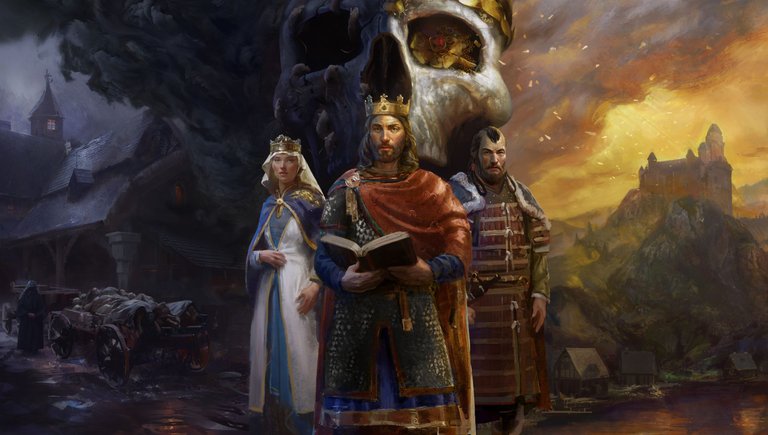

About its launch

Crusader Kings is a real-time strategy saga developed by Paradox Development Studio, a well-known company dedicated to developing strategy/management games such as Europa Universalis, Cities Skylines, Crusaders Kings, Victoria and Age Of Wonders. The company is one of the best developers of the genre.

The launch of the new game was a resounding success, reaching over one million copies sold in its first month. Critical reception was equally positive, with the game being praised for its improved accessibility, ability to generate emergent narratives and strategic depth. This commercial success cemented Crusader Kings III as one of the best, if not the best game in the genre.

My first time playing it

Since I was a child, I have always been passionate about two themes: strategy and management games, those set in the Middle Ages. Throughout my life, I have enjoyed titles such as the Age of Empires saga, Mount and Blade, Total War: Rome II and Attila, Kingdom Come: Deliverance, Stronghold Crusader, among others.
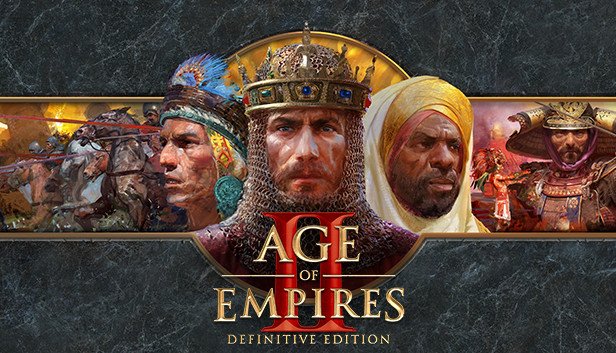
My review of Age of Empires II here: Age Of Empires II (1999 and HD version)
In Argentina, Steam's regional prices were very affordable at the time; new games cost little more than 15 dollars. This led me to buy several titles that, in the end, I never got to play.
On one of my visits to the store, the cover of one of the best-selling video games of the time, Crusader Kings III, caught my eye. I bought it and tried to play it once, but due to lack of time to learn its complex mechanics, I abandoned it after a few minutes.
One day, bored, I decided to give it another try and immersed myself in the tutorial, which lasted about half an hour. Little by little, I began to understand the mechanics of the game: how the vassalage system worked, land rights, succession, intrigue, and the innumerable functions of this fascinating video game.
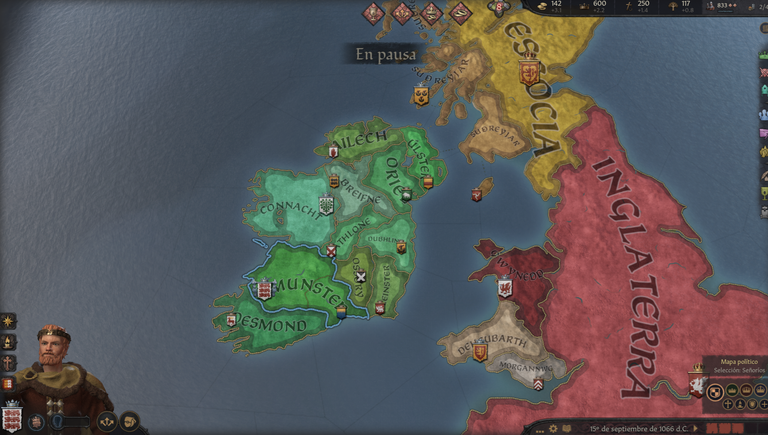
Image taken by me from the game
I decided to create my first game after the tutorial, I always liked the history of the island of Britannia, so I decided to start with the Duchy of Munster, in modern Ireland.
Currently, I have over 375 hours played in Crusader Kings III on Steam, although the actual total is even higher. I have enjoyed countless games, taking on the role of king in various regions such as Italy, Africa, West Asia, England, Bohemia, among other kingdoms. Each game has offered me new experiences and challenges.


Economy

In Crusader Kings III, gold, prestige, piety, and renown are essential resources that influence various game mechanics:
Gold: The currency of the realm, used to maintain armies, build upgrades, and bribe characters. It is vital to the economy and expansion.
Prestige: Reflects the status and power of a ruler. It is earned through achievements, wars, and alliances, and is used to declare wars, upgrade titles, and make important decisions.
Piety: Represents religious devotion. It is gained through pious acts and is used to interact with the Church, summon holy wars, and gain religious favors.
Renown: Measures the fame of a dynasty. It is earned over generations and unlocks dynastic benefits, enhancing long-term influence and stability.

The economy is a crucial aspect essential to maintain a kingdom and expand it. The economy of the game is mainly based on possessions and their proper management:
- Possessions: Lands under the direct control of a ruler, and each possession includes baronies, counties, and duchies, which in turn contain castles, cities, and temples. These infrastructures generate revenue through taxes and provide levies for the army.
Improvements: Investing in improvements within your holdings is key to increasing income and military capability. These improvements can include new structures, such as walls or training camps, which strengthen both the economy and defense.
Vassalage: Vassals contribute to the economy through taxes, but their loyalty and the amount they pay may vary depending on their opinion of you and the laws of the realm.
The player has a limit on the number of possessions he can directly control, known as the “dominance limit”. Possessions within this limit generate the most revenue, since they are under direct control. If this limit is exceeded, the income and efficiency of those possessions decreases. To avoid penalties, it is common to cede control of excess holdings to a vassal, thus effecting the feudal system.
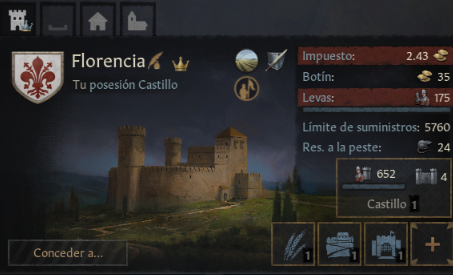

War (Casus Belli, men-at-arms and levies)

If there is something that cannot be missing in a game based on the Middle Ages, it is the WAR. In this game, in order to declare war, a “Casus Belli” is necessary, that is to say, a reason for war. There are several types of casus belli in the game:
- Title Rights: Allows to declare war to claim a specific title, either by inheritance, ancestral right or some other legitimate claim.
- Conquest: Allows declaring war to claim a title without rights to the title. This is only possible in religions such as Asatrú and in Tribal systems of government.
- Iure: Allows you to declare war to claim a territory that should be part of your kingdom or duchy according to the “De Jure” system. For example, if you are duke of a territory and you do not have control of one of the territories that would originally form that duchy. It allows you to declare war to take control of the county.
- Holy War: Called by religious leaders to attack kingdoms professing a different religion.
Well, we already know the requirements to be able to declare a war. But we have not yet talked about the most important factor in one, the army, which in the game is divided into two types:
Levies They are the most numerous part of the army, made up of peasants/inhabitants of the kingdom. Although they are the most numerous unit, they are also the weakest due to their poor equipment and lack of training. The amount of levies you can recruit depends directly on the amount of land you own.
Men-at-arms: They represent the elite of the army and are composed of professional soldiers. These units are much more powerful than the levies, and are divided into several categories, such as light cavalry, archers, pikemen, light infantry, etc. Each type of unit has specific advantages depending on the terrain and enemy units, for example, cavalry are especially effective against archers, while pikemen are excellent for stopping cavalry charges. It is necessary to have a good economy to be able to maintain these forces.
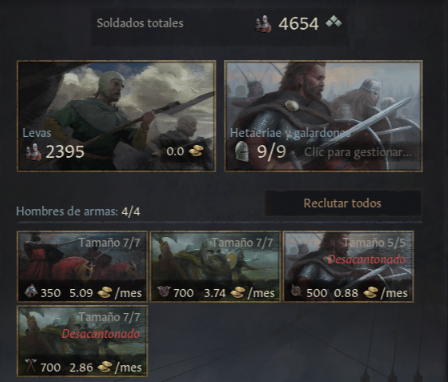

Religion

The very name of the game, Crusader Kings III, refers to the Crusader Kings, underlining the importance of the Crusades and the influence of religion during medieval times. In Crusader Kings III, religion is a fundamental factor that profoundly affects gameplay and game dynamics.
The game covers a vast region including Europe, North Africa and West Asia, where various religions and sects manifested themselves. Each of these religions has several branches and variations, each with its own unique mechanics and characteristics.
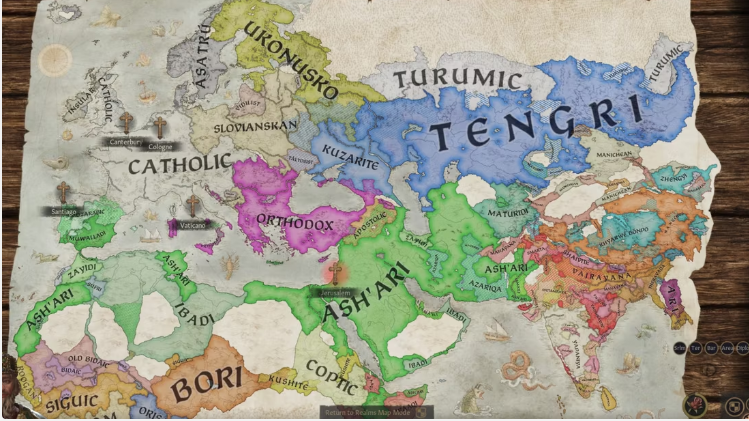
It affects the opinion of vassals, marriage alliances, and holy wars, as well as modifying the economy and resources through donations and exactions. Each religion has certain prohibitions and penalties for certain actions that may be “sinful”. For example, in some religions adultery is a crime and can be punished with death, in others it is only a deviation that only generates a penalty of opinion.

Culture

Culture represents the set of customs, traditions and technological advances of a “civilization”. Each culture has unique traits and bonuses that affect the game in various ways.
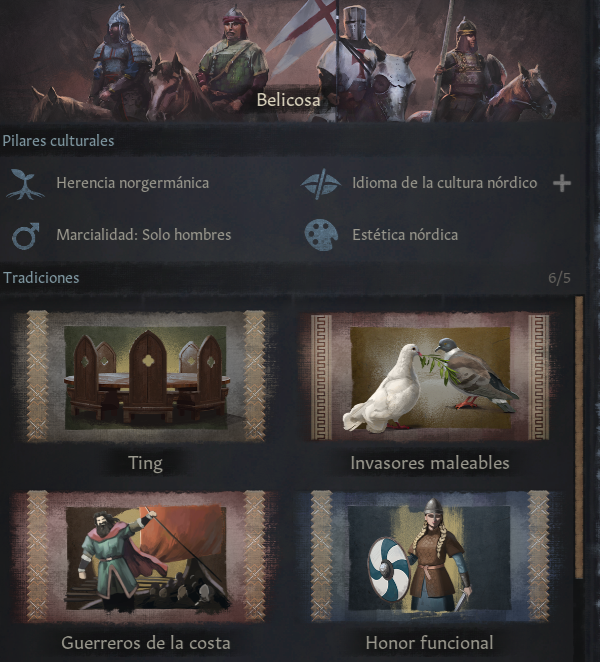
A good example would be the Nordic culture, it is a culture with warlike tendencies, which contains traditions such as:
Coastal Warriors: Allows characters from the Nordic culture to raid different possessions by landing from the sea.
Winter Warriors: Offers bonuses when fighting in cold areas.
Functional Honor: Allows women to serve as “Squire Maidens”.
There are cultures that allow hiring unique units as soldiers, such as the Greek with the catafracts, the Mongolian with the horsed archers and the Norse themselves with the Veteran Varangians and Huscarles.
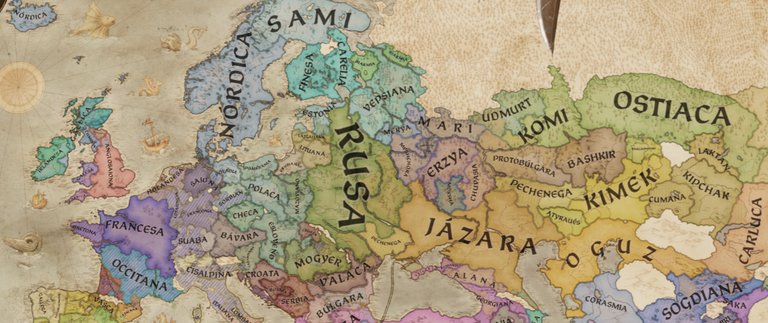

Forms of government

The most important mechanic in Crusader Kings III is undoubtedly vassalage. In the game, a possession can be controlled by different levels of feudal authority, each of which has responsibilities and obligations towards the higher level. The vassalage structure is organized as follows:
Baron: Controls a small possession, such as a castle. The baron owes his allegiance to a count owing him income and levies.
Count: Oversees several smaller possessions, such as counties. The count owes his allegiance to a duke, also contributing income and levies to him.
Duke: Administers several counties in a region. The duke owes allegiance to a king.
King: Governs a kingdom composed of several duchies. Sometimes he may be subordinate to an emperor or be independent.
Emperor: Controls a large territory composed of a large number of kingdoms. He is the highest possible authority.
However, the game is not limited to the feudal system; it also presents several alternative forms of government that reflect the political diversity of the time:
Tribal: Present in regions such as Nordic and Germanic, this system is based on tribal leaders who exercise authority over their followers without feudal structure. They can easily conquer and raid land, as they do not need rights.
Clan: Found in Asia and Africa, this system is based on family clans. Clans have their own internal dynamics and may form federations or compete with each other.
Republics: Like the Republic of Venice, the government is based on a republican structure. They are usually led by nobles or citizens and are centered on trade. This type of government is not playable.
Theocracies: Represented by entities such as the Papacy. Leadership is based on religious authority, in the case of the game, the Pope, who exercises his power over Rome. It plays a very important role, since they can declare Holy Wars, excommunicate characters, among other things. This type of government is not playable.
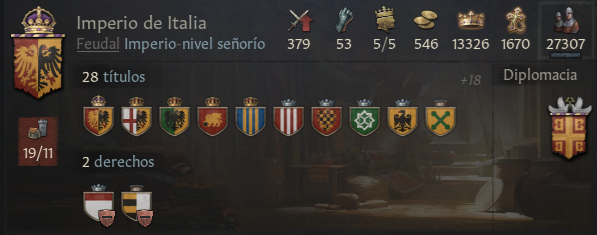

Succession and Marriage

One of the most influential mechanics in Crusader Kings III is succession. As in real life during the Middle Ages, nobles used to have a large number of offspring. However, having many sons presents a significant challenge. When your character dies, the title and domains are divided among all the male children, which can fragment your lordship considerably.
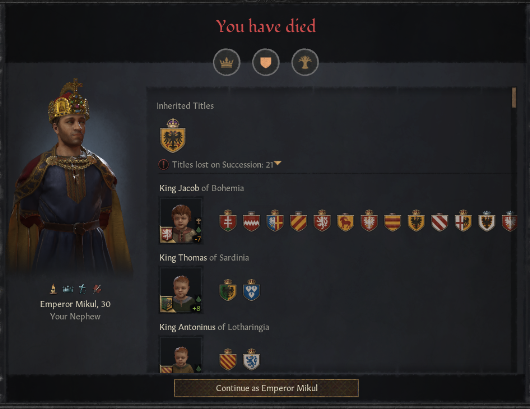
Marriage alliances allow you to secure non-aggression pacts and reinforcements in times of conflict, as well as to strengthen the political position of your dynasty. However, they also add complexity to succession management. By forming alliances through marriages, you are often forced to share some of your power and territory with other family members, which can complicate the administration of your domains when it comes time for succession.
The succession system is also linked to the laws and traditions of your kingdom, which can determine how territories are divided among heirs. If not handled carefully, a poorly managed succession can weaken your position and lead to internal conflicts, with consequences that affect the stability and expansion of your dynasty. To ensure the continuity and stability of my domain, I have resorted to extreme measures, such as eliminating the least desirable sons and leaving the one with the best traits as heir.


Educational traits

The skill tree in Crusader Kings III is a system that represents the development and specialization of a character throughout his life.
Diplomacy: Improves a character's ability to manage relationships and negotiate with other characters. Includes skills that affect the ability to form alliances, manage public opinion and make treaties.
Martial: Increases the character's effectiveness in warfare, including skills in military strategy, commanding armies, and the ability to organize effective military campaigns.
Administration: Reflects the character's ability to manage and administer his territory, manage the economy and optimize resources. It affects tax collection, construction and land maintenance.
Intrigue: Related to espionage and manipulation skills. Improves the character's ability to carry out conspiracies, manipulate others and uncover secrets.
Learning: Related to the character's wisdom. Facilitates the conversion of your vassals to your faith, changes in cultural fascination and more.


A problem with the game

Despite having countless mechanics, Crusader Kings III has a problem that has been criticized by part of the community: Paradox Interactive's monetization strategy. This company, known for its strategy videogames, has as one of its main businesses the sale of “Additional Content” or DLC. Since its launch, Crusader Kings III has received more than ten DLCs.
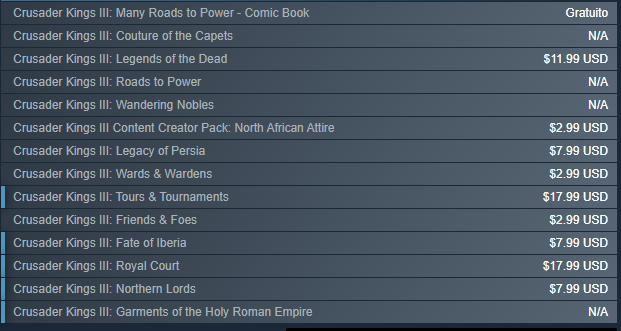
Although some Crusader Kings III DLCs, such as Royal Court and Tours & Tournaments, offer interesting content and expand the gameplay, their high price of 17 USD each doesn't always seem to justify the purchase. Personally, I purchased some DLCs when they were still cheaper, but the idea of spending more than 80 USD to have all the additional content seems excessive to me, especially considering that, although they enrich the game, they do not offer a radically different experience. This led me to opt for a pirated version with all the DLCs included.

Conclusion

Throughout the post, I tried to offer a brief explanation of some of the game's mechanics, though I know I fell short. Crusader Kings III is an incredibly deep title that demands many hours of gameplay to be fully understood.
My experience with Crusader Kings III has been fantastic. I've enjoyed more than 15 games in all the regions the game offers, and I've had fun creating incestuous religions, cannibals, and even a dynasty of albino characters. In addition, the game stands out for its historical content, addressing systems such as feudalism, religion, and cultures, making it both an entertaining and educational experience.
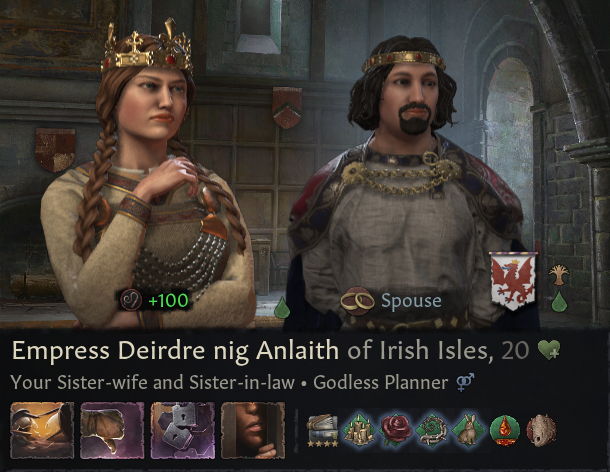

Sources:
CK3 Meme
CK3 Banner
CK3 Incest Meme
Others posts related:
[ESP-ENG] Why is Bloodborne the best game I've ever played?
Age Of Empires II (1999 and HD version) - One of the best games in history

I love strategy games and this looks like a lot of fun.
Crusader Kings es un juegazo, que si bien es bastante completo, tiene el problema que mencionas de los Dlcs, es bastante rancio que haya que pagar 80 Usd para tener todo el contenido. De igual manera, no deja de ser un pedazo de juego.
Sin ir más lejos, viendo las horas que tenes claramente ya lo sabes JAJAJA.
Pd: El tema de los idiomas, puede ir a tu gusto, pero viendo que sos de Argentina, estimo que es más cómodo nuestro idioma natal. (El español, está totalmente aceptado en la comunidad).
¡Saludos!
Sí, no sabia en que idioma ponerlo. No quería hacer los dos idiomas en un post porque se iba literalmente a 5000 palabras, de hecho tuve que recortar bastante de contenido. Desconocía si en la comunidad hay más gente de habla-hispana que angloparlante, ya que es mi primer post en la misma
: )
Gracias por comentar, ¡saludos!
Yo suelo ponerlo en ambos, aunque si que tienes tu punto con lo de las 5.000 palabras jajaja.
Se aceptan igual ambos idiomas, pero siendo que es más cómodo para vos el español, ya tu sabes.
Ya que estamos, ¿Tenes permiso para darme el rango verificado en el discord?
Afirmativo, aunque no veo tu nick entre los usuarios.
Cual utilizas en discord?
devilsouls